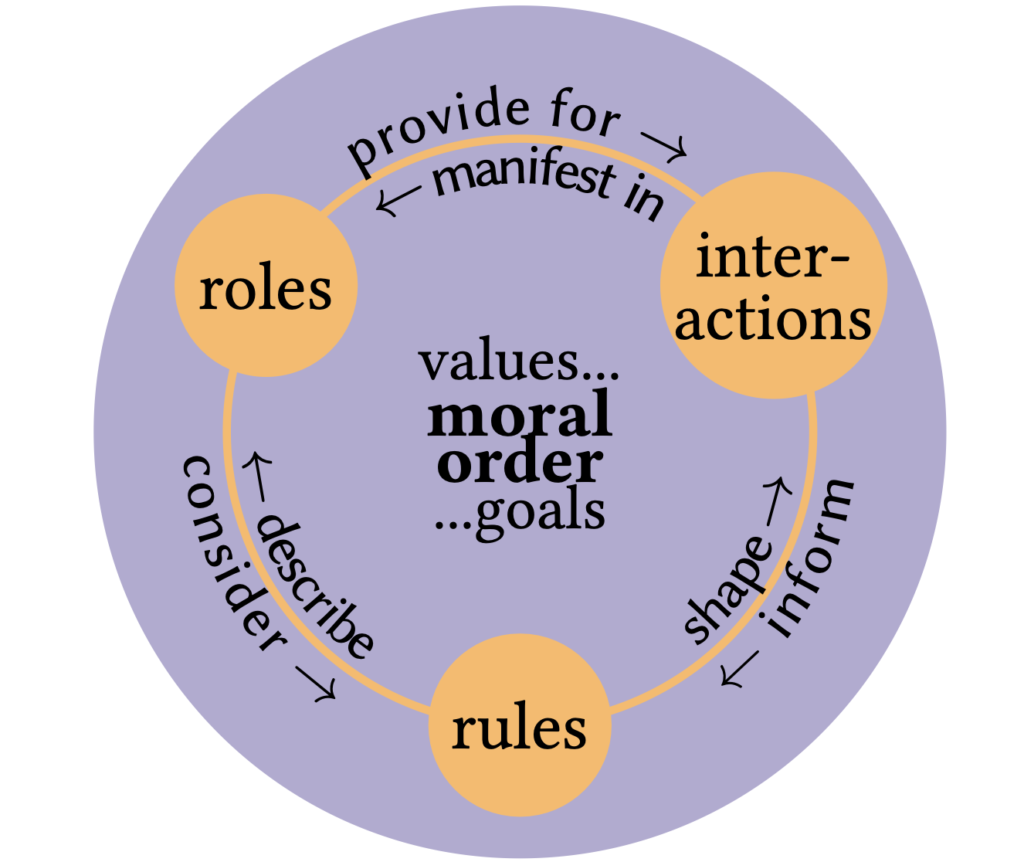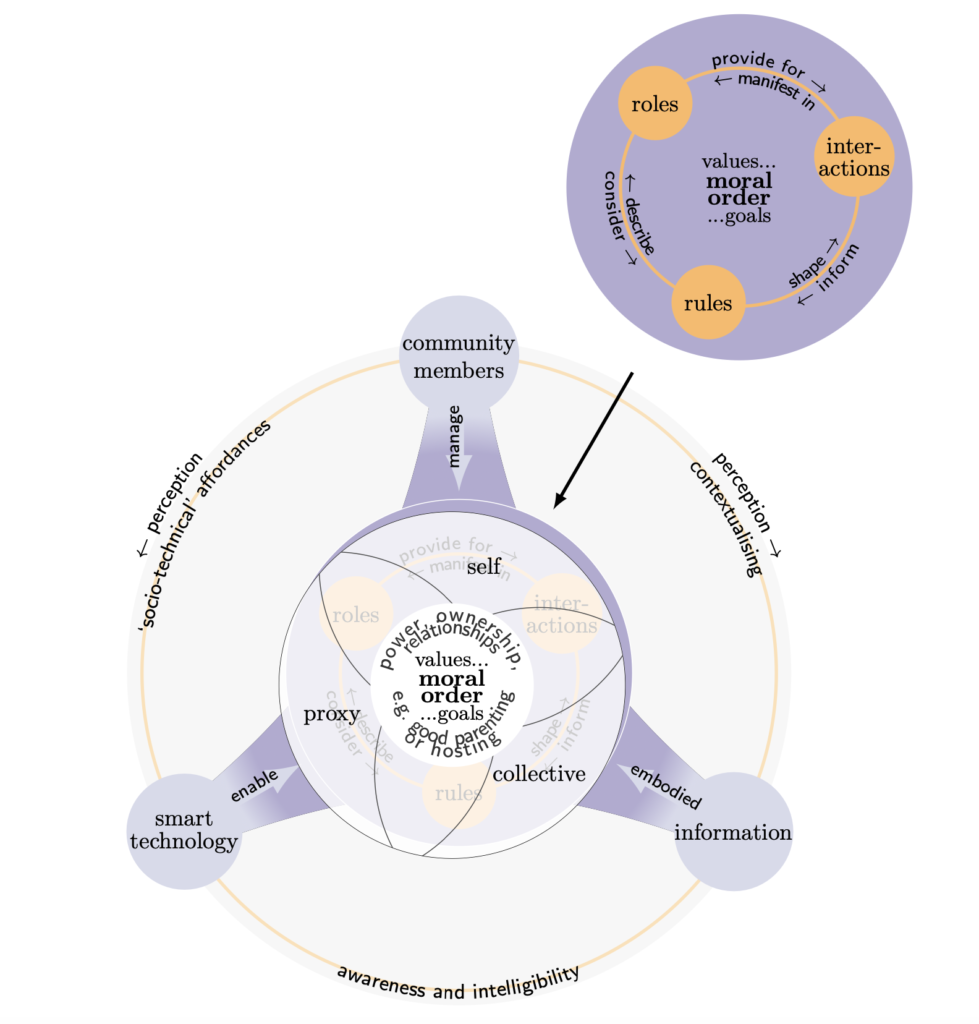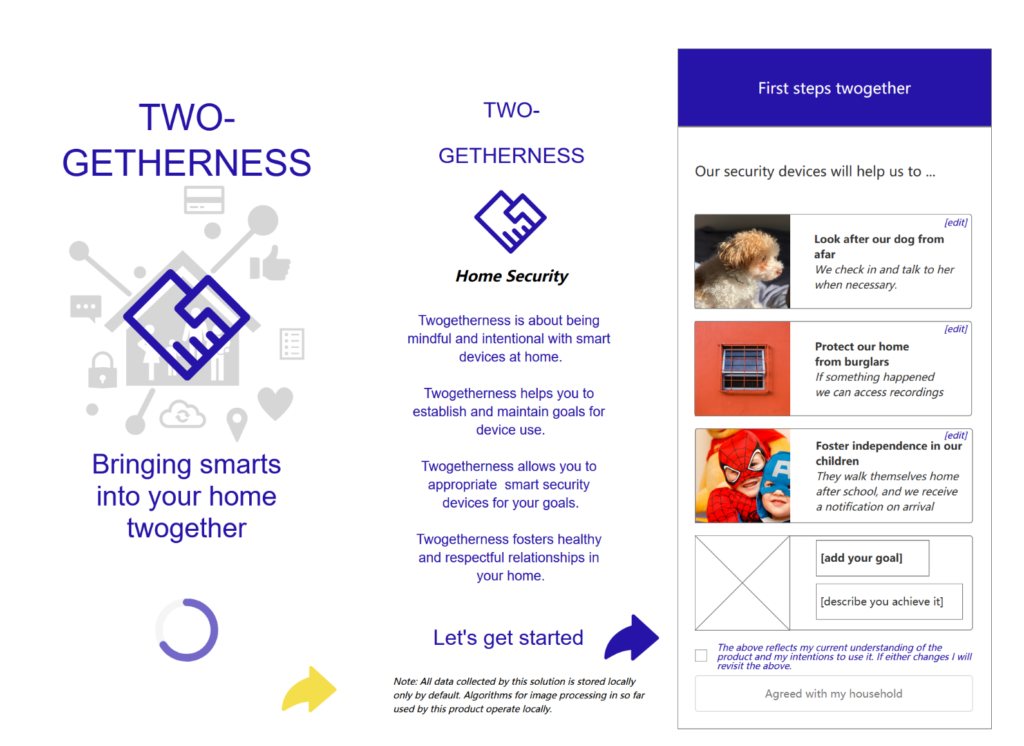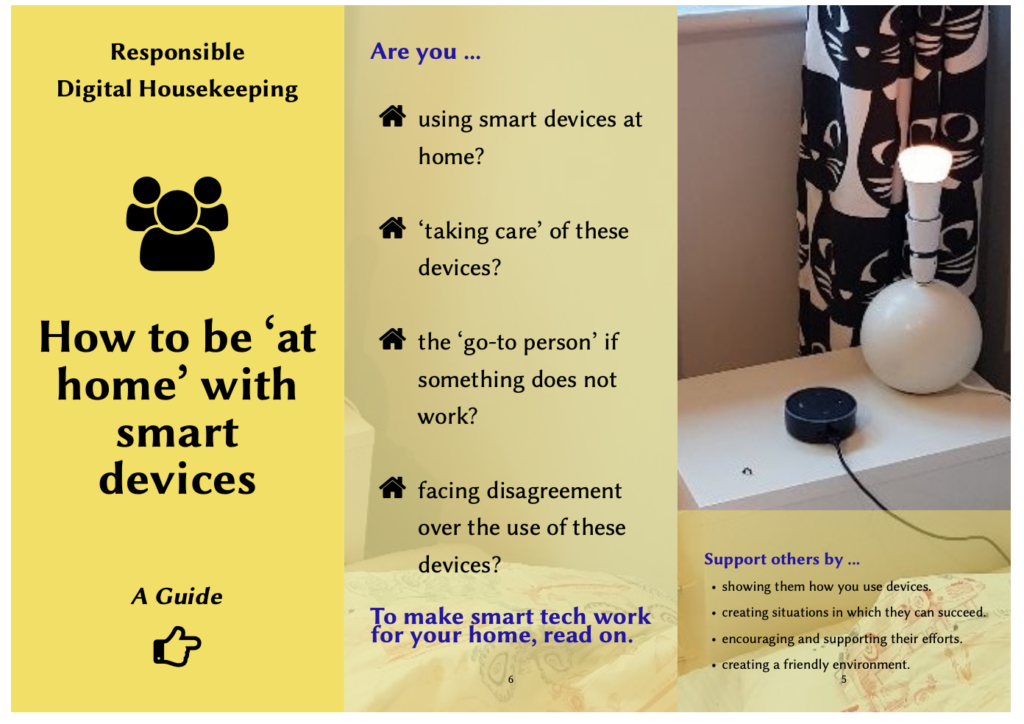“You know, I still don’t understand your thesis” – When your parents make that comment, you want to indulge their intellectual curiosity. It so happens that the occasion for this comment was my own graduation. I make a living by advocating to empower humans in their use of technology. So, this is not only my duty as a son but also as a professional.

I propose a perspective of privacy as ‘social goals’ to empower communal use by design for smart home technology.
The full-text of my DPhil thesis is available online: https://ora.ox.ac.uk/objects/uuid:485bd93c-495c-4ebb-816a-0de45370f151
Why do I propose that?
Many anecdotes show how unfit some smart technologies for the home context are. Smart devices seem immature, feature and reliability-wise. People have a hard time understanding what they do and how they work.
There is little research on the communal or familial perspective on smart device use. Yet, most devices are used in communal settings at home but are not necessarily made for that. More and more stories surface of shared devices instrumentalized for abusive behavior.
‘Knowledge is power’, a famous quote by Sir Francis Bacon goes. Manufacturers know more than their users. Some inhabitants know more than their cohabitants. Companies amass data on their users. Individuals may even leverage data to manipulate their cohabitants. Knowledge of technology use can lead to serious power imbalances.
People might describe these issues as privacy violations. While people generally are happy to share their views on privacy, there is little agreement on what the concept actually means. Even academics cannot agree on the nature of the concept (what it is), its purpose and use (what it is good for), and its relevance (why and how we should care about it).
In conclusion, privacy might be useful to frame the observed power imbalances, but is a complex concept in itself. I took this as the starting point to search for a new perspective on privacy for communal use in the smart home.
How do I propose that?
The basis of my research is the insight that there is no suitable theory of privacy or human behavior of communal use in smart homes available. Furthermore, applying available theory seems imprudent. The complexity of home-life and disagreements on the value and nature of privacy between people suggest a new approach is needed.
Researchers use approaches that gain insight from data (i.e., inductive approaches). They do not need existing theory to be applied. Qualitative methods from the social sciences and psychology are used to this end.
I explored human behavior in communal contexts through a series of interviews and a six-months study of familial device use. I retrieved insights from structuring and understanding the interview, observational, and diary data.

The design of roles, rules, and interactions in smart devices is not fit for the communal context of the home.
Individuals and families use ‘social goals’ to describe their ideas and intentions for device use. They can also invoke them to justify their behavior. These include the examples of ‘being a good neighbor’, ‘being a good parent’, or ‘being a good host’. People discuss these goals in context of setting up and using devices. Social goals guide their continued efforts of making devices work for the family.
Many of the phenomena of privacy are subsumed in these efforts. Participants discussed the risks of video and voice recording. They contemplated whether those were acceptable for children’s bathrooms. They also debated whether it was customary to inform visitors about smart devices in the home.
Existing devices did not cater to the related social interactions. Instead, devices would be the cause for further discussion and compromise. The design of roles, rules, and interactions in smart devices is not fit for the communal context of the home.
What is the proposal exactly?
If the design is unfit for purpose, then we need a constructive way to improve it. One way to facilitate the design work is by using rich, descriptive frameworks that set the scene for design and innovation. The framework ‘Communal Privacy in Smart Homes’ facilitates innovation by sensitizing to the complexity of communal use. It helps designers to understand requirements for new artifacts, and it serves as a boundary object for discussions between stakeholders.

The framework ‘Communal Privacy in Smart Homes’ informs innovation and design for communal privacy.
The framework offers guidance for designers and innovators to understand the impact of social goals on user behavior. It also allows them to explore the impact of their design decisions on that behavior. The framework combines rich empirical data with analytic insights. Thereby, sensitizing concepts (important insights) become relatable to designers and developers.
Two case studies demonstrate the power of the framework in overcoming common privacy challenges. A smartphone app, ‘Two-Getherness’ facilitates discussion and negotiation of social goals by design. The guide to ‘Responsible Digital Housekeeping’ encourages administrators to be more mindful of their cohabitants.
Any design intervention affects a balance of power in the home – design itself is a political act. The framework describes a process inspired by Responsible Research and Innovation. The process deliberates design choices, empathizes with those affected, anticipates possible outcomes, and reacts to adjust decisions where necessary.


My thesis proposes ‘social goals’ as perspective for the responsible design of communal privacy in smart homes. The framework illustrates and documents the power of the concept. It also discusses the need and documents a process of responsible research and innovation for communal privacy in the smart home.
Ultimately, I discuss how the perspective can serve to avoid power imbalances inside and outside the home. It is a perspective that requires further exploration through research and design. The main contributions of my thesis are to discuss and illustrate privacy as ‘social goal’ through the conceptual framework, the low-fidelity prototypes, and theoretical contributions to research and practice in HCC.
You can download my thesis here.
If you are curious to learn more after reading this blog post, get in touch. I’m always happy to discuss my research.